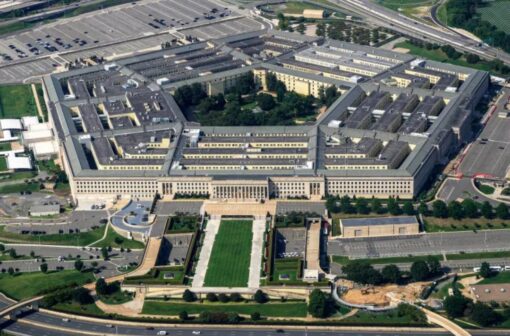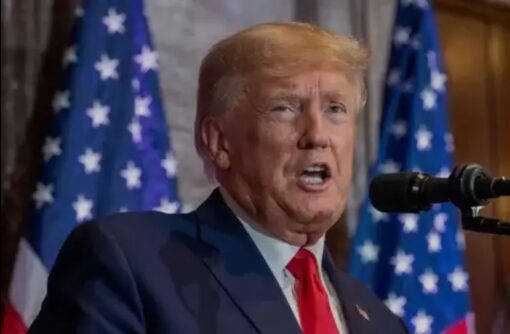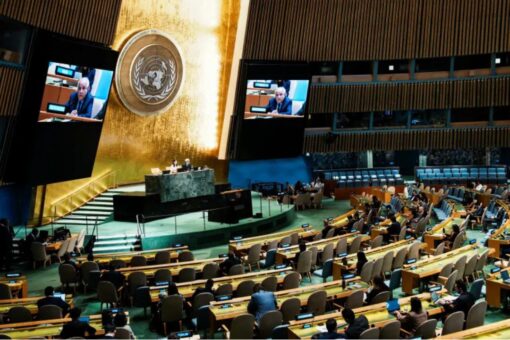The relationship between the Pentagon and the press has entered a volatile new phase after officials under Donald Trump demanded that journalists agree not to publish what they describe as “unauthorised” information.
The move, revealed after a closed meeting between senior defense representatives and prominent media outlets, has provoked uproar across the press and civil society, sparking urgent questions about constitutional rights and the future of government transparency.
What might appear as a protective measure for classified operations is, according to critics, nothing less than an unprecedented attempt to cement Pentagon secrecy into official policy.
Multiple reporters who attended the closed-door briefing disclosed that Pentagon officials repeatedly invoked the need for patriotism and responsibility, urging journalists to cooperate for the sake of national security.

One correspondent described the tone of the meeting as “heavily loaded with warnings.” Speaking on condition of anonymity, he explained, “They didn’t come right out and say we’d face prosecution, but the implication was clear. If we publish something they later deem unauthorised, there would be consequences.”
The deliberate vagueness of the term “unauthorised information” is what alarms legal experts the most, since it can be stretched to cover anything from leaked battlefield reports to internal budgetary debates.
Civil liberties groups argue that this latest directive represents an escalation in the Trump administration’s antagonistic approach toward the media.
Since his first term in office, Trump has portrayed critical outlets as “enemies of the people,” a phrase he repeated often to his supporters. By instructing the Pentagon to secure an agreement from journalists on withholding unauthorised information, opponents say the administration is formalizing hostility into law.
“This is not about troop movements or intelligence secrets,” argued a constitutional lawyer in Washington. “This is about control. Pentagon secrecy is being used as a shield to prevent scrutiny, not to protect the country.”
Editors of leading newspapers and broadcasters have already indicated they will not comply with such demands. One editor-in-chief stated bluntly, “Our job is not to serve as an extension of the Defense Department. Our job is to inform the public. If we begin asking the Pentagon for permission before every story, then journalism in America is finished.”
Another senior news director said the idea of signing a blanket pledge was “not only unconstitutional but insulting,” adding that the press “has never been and will never be a mouthpiece for any administration.”
Their refusal sets the stage for a potential constitutional clash between the executive branch and the media unlike any seen since the era of the Pentagon Papers.
Observers point out that the timing of this confrontation is significant. In recent years, leaks from defense insiders have embarrassed the Pentagon by exposing flawed strategies, procurement failures, and questionable overseas operations.
Far from undermining security, such leaks have often forced reforms and sparked public debate. A political science professor at Georgetown University noted, “Historically, disclosure of what the Pentagon wanted hidden has been essential to correcting mistakes.
Without it, Vietnam would have dragged on even longer, Iraq abuses might have remained buried, and surveillance excesses would have gone unchecked. The demand for silence is not about safety; it is about avoiding accountability.”
Retired military leaders have also weighed in with caution. While many emphasize the importance of operational security, some fear the Pentagon’s sweeping approach could backfire.
One retired general remarked, “If you classify everything as unauthorised, you risk losing public trust. Secrecy may protect operations in the short term, but in the long run, transparency strengthens the military’s credibility.”
His remarks underscore a growing divide within the defense community itself, where many still believe openness and accountability are fundamental to maintaining the respect of the nation.
Journalists covering national security stress that they already practice restraint when reporting. Sensitive troop positions, covert operations, and intelligence sources are routinely withheld to protect lives.
The Pentagon’s demand, however, moves beyond caution and into censorship. As one veteran reporter explained, “We know the difference between protecting soldiers and hiding mismanagement.
The Pentagon secrecy push is trying to erase that line.” Such concerns reflect not only the press’s alarm but also the deeper issue of how a democracy functions when its military establishment dictates the boundaries of acceptable knowledge.
Civil society groups have sounded the alarm about the chilling effect this could have on whistleblowers. If reporters are forced into compliance, insiders with evidence of wrongdoing may no longer trust that their disclosures will see daylight.
“Whistleblowers are essential to democracy,” argued a campaigner with a nonprofit watchdog. “From exposing war crimes to revealing waste, their courage relies on the assurance that journalists will publish the truth.
If the Pentagon locks down the media, whistleblowers will stay silent, and abuses will flourish unchecked.” This dimension of Pentagon secrecy, critics say, is perhaps the most dangerous, because it eliminates one of the last lines of defense against government abuse.
The legal ramifications are equally troubling. Constitutional scholars predict that any attempt to enforce such a pledge would be immediately challenged in court, likely climbing all the way to the Supreme Court.
The First Amendment, they argue, has long provided the press with the right to publish information in the public interest, regardless of whether it was officially sanctioned. Past rulings, from the Pentagon Papers in 1971 to more recent decisions on surveillance disclosures, have consistently favored the press.
One scholar said bluntly, “The Trump Pentagon’s effort is destined to fail in the courts, but the damage it does in the meantime—to press confidence, to whistleblowers, and to public trust—could be lasting.”

Already, international observers are noting the contradiction between America’s rhetoric abroad and its treatment of the press at home.
Rights organizations that monitor global press freedom have issued warnings that the United States risks sliding into the same practices it often condemns in authoritarian regimes.
One European journalist commented, “When Washington lectures others about transparency while simultaneously demanding silence from its own media, the hypocrisy is staggering.” Such criticisms strike at the heart of America’s image as a defender of free speech worldwide.
Despite the backlash, Pentagon officials appear determined to enforce their stance, though how they intend to do so remains unclear.
Some speculate that rather than pursuing legal enforcement, the administration may rely on informal pressure, threatening access to reporters who do not comply.
Others warn that the Justice Department could be deployed more aggressively, using espionage laws against journalists in ways that were once considered politically unthinkable.
However, the resilience of the press remains strong. “We’ve been threatened before, and we’ll keep doing our job,” one veteran correspondent vowed. “The public deserves the truth. Pentagon secrecy will not silence us.”
As the standoff continues, the implications extend beyond one administration or one department. At stake is the delicate balance between security and liberty, secrecy and transparency.
For many Americans, this is not just about defense reporting but about whether the press remains free to perform its essential role as a check on power.
The words of one retired military officer perhaps capture the issue best: “A strong nation is not one that hides its flaws, but one that confronts them openly. If the Pentagon cannot withstand scrutiny, then the problem lies not with the media but with the institution itself.”
In the battle between Pentagon secrecy and press freedom, the coming months may decide whether America remains true to its democratic ideals or drifts toward a model where silence is enforced and truth is optional.


